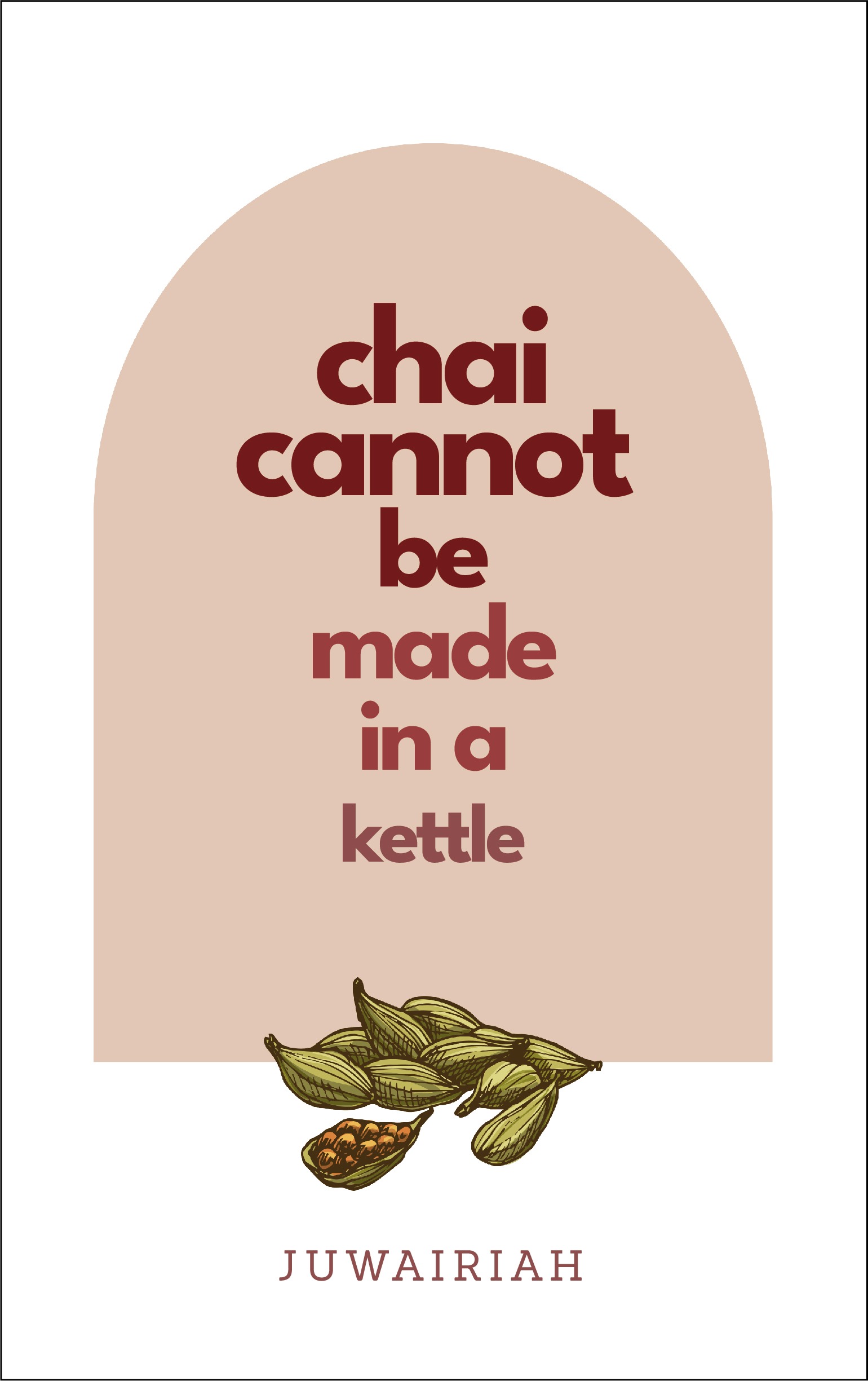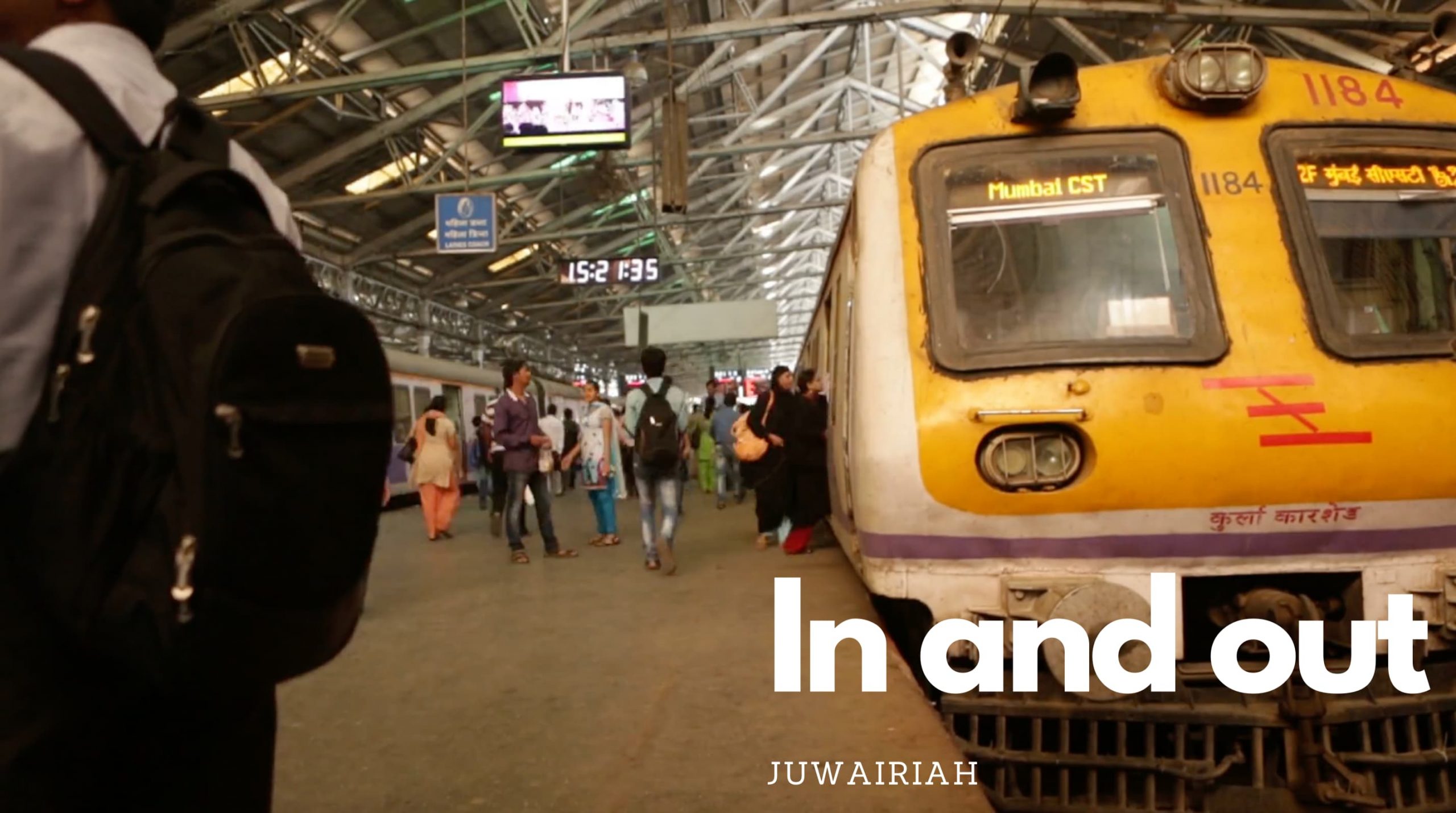We surrendered syllables so that we would fit in,
muted rhymes and rhythms so we weren’t booted out.
Practiced proper pronunciation to dig in
to the leftover morsels of our culture we threw out.
Feasted on the flesh of our forefathers to cave in
to mass murder of our mother tongue that is hung out.
Confine us back to our cells so we can be filled in,
like a diversity tick box to help you check out.
Yes, we are accustomed to this behaviour,
of being in and out.

About the Poet
Juwairiah is a poet and educator. Her first collection ‘chai cannot be made in a kettle’ was birthed during the pandemic and written as part of her MA in Creative Writing and Education. The collection explores her identity as a British, Muslim, Indian woman living in London.

This poem appears in chai cannot be made in a kettle
In chai cannot be made in a kettle, Juwairiah speaks of belonging, straddling the gaps between cultures, outlooks and worldviews, and embracing the dissonance of her identity as a British, Muslim, Indian woman. Her verses explore the meaning of home as a multicultural and multilingual household. ‘Some mornings,/ I peep through the keyhole,/ watch her and her father converse in Swahili./ I do not understand their language so instead/ I watch her tongue dance.’
She writes about her connection to her faith and community, poignantly articulating the ways in which these are misunderstood, marginalised and commodified in modern-day Britain, and the verbal and cultural acrobatics involved in having an identity that bridges cultural and linguistic divides. ‘We surrendered syllables so that we would fit in,/ muted rhymes and rhythms so we weren’t booted out.’
Scents and flavours evoke a lost heritage in many of the poems in chai cannot be made in a kettle. The rituals of community and faith create a background rhythm to Juwairiah’s poems, the ache of a wistful collective memory interacting with the everyday liminal realities of life as a British Indian woman: ‘I heard whispers of brown sacred women,/ who lay under darkness, longing for their motherland./ A place where bodies bathe in sweet honey milk,/ doused in ancient cardamom pods.’




